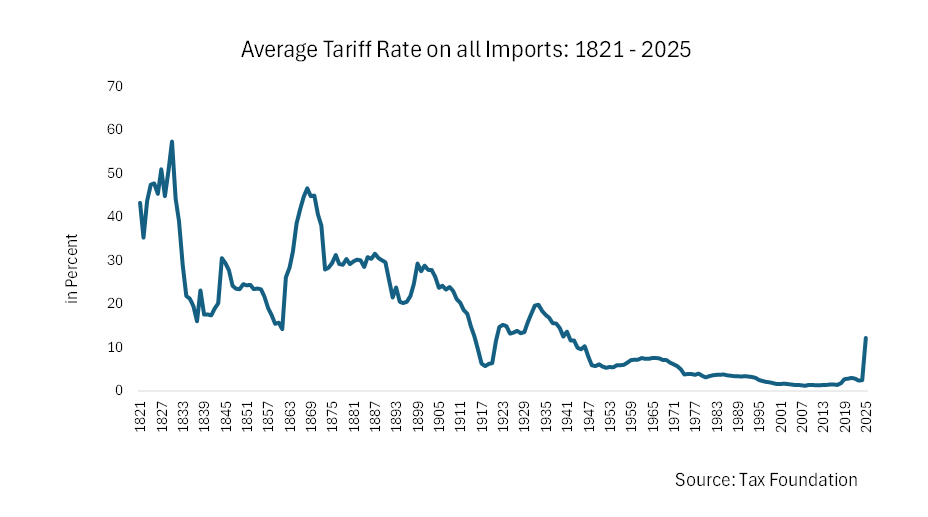Having worked with Dr. Laffer for several years, I heard him explain the tenets of supply-side economics, or “the five pillars of prosperity” many times. These policies are (1) a low-rate broad-based flat tax; (2) a moderate level of government spending to ensure that the benefits from the government program exceed the costs created by the taxes collected; (3) a stable dollar that maintains its purchasing power over time; (4) minimal regulations; and (5) free trade.
President Trump’s trade wars, including breaking off trade negotiations with Canada, violates pillar number 5. As Politico reported, “President Donald Trump abruptly halted ‘all trade negotiations’ with Canada late Thursday night over an ad that enlisted the voice of Ronald Reagan to oppose U.S. tariffs.” President Trump may not like the ad, but that does not make it untrue.
In fact, the ad accurately portrays President Reagan’s approach to global free trade and President Trump is simply wrong when he claims that Ronald Reagan liked tariffs. Nothing is further than the truth – just Google it. The offending ad correctly quotes Reagan, who further noted that
Our peaceful trading partners are not our enemies, they are our allies. We should beware of the demagogues who are ready to declare a trade war against our friends, weakening our economy, our national security and the entire free world. – Ronald Reagan
Reagan’s opposition to tariffs was not merely words either. His position on tariffs can be clearly seen in the evidence. Based on data from the Tax Foundation, the below chart presents the average tariff rate on all imports into the U.S. between 1821 and 2025.
If President Reagan were an advocate of tariffs, you would expect to see a rise in the average tariff rate during his time in office. But the data show that tariff rates were exceptionally low throughout the 1980s when Ronald Reagan was president. During his presidency, the average tariff rate was 3.56 percent, which was below the post-World War II average of 3.80 percent (beginning in 1950).
The low average tariff rate that persisted throughout the 1980s stands in stark contrast to today. According to the Tax Foundation, tariffs on the average import into the U.S. has jumped to 12.2 percent. A rate that has not existed since the 1940s.

Taxes, whether imposed on income or imports (i.e., tariffs), are anti-growth. Look no further than the spike in the average tariff rate during the 1930s due to the Smoot-Hawley Tariff Act. This act significantly raised tariffs on over 20,000 imported goods and played a pivotal role in making the Great Depression as devastating as it was.
The economic devastation that was wrought by these tariffs is why correcting President Trump’s assertion that President Reagan favored tariffs is not only important for setting the historical record straight. It is also imperative if we are going to avoid a “devastating” economic downturn.
The Reagan Revolution was a pivotal economic moment. The pro-growth incentives that were established when federal economic policies more closely adhered to Laffer’s five pillars of prosperity helped jumpstart the U.S. economy for decades.
As economic policy has drifted further away from these pillars, national economic growth has unsurprisingly suffered. President Trump’s trade wars take another step away from sound economic policy. For the sake of our future prosperity, the country needs a policy reversal. At bare minimum, it is wrong to link President Reagan’s legacy to the poor economic performance from the Trump tariffs that is sure to materialize.
Dr. Wayne Winegarden is a senior fellow in business and economics at the Pacific Research Institute.

